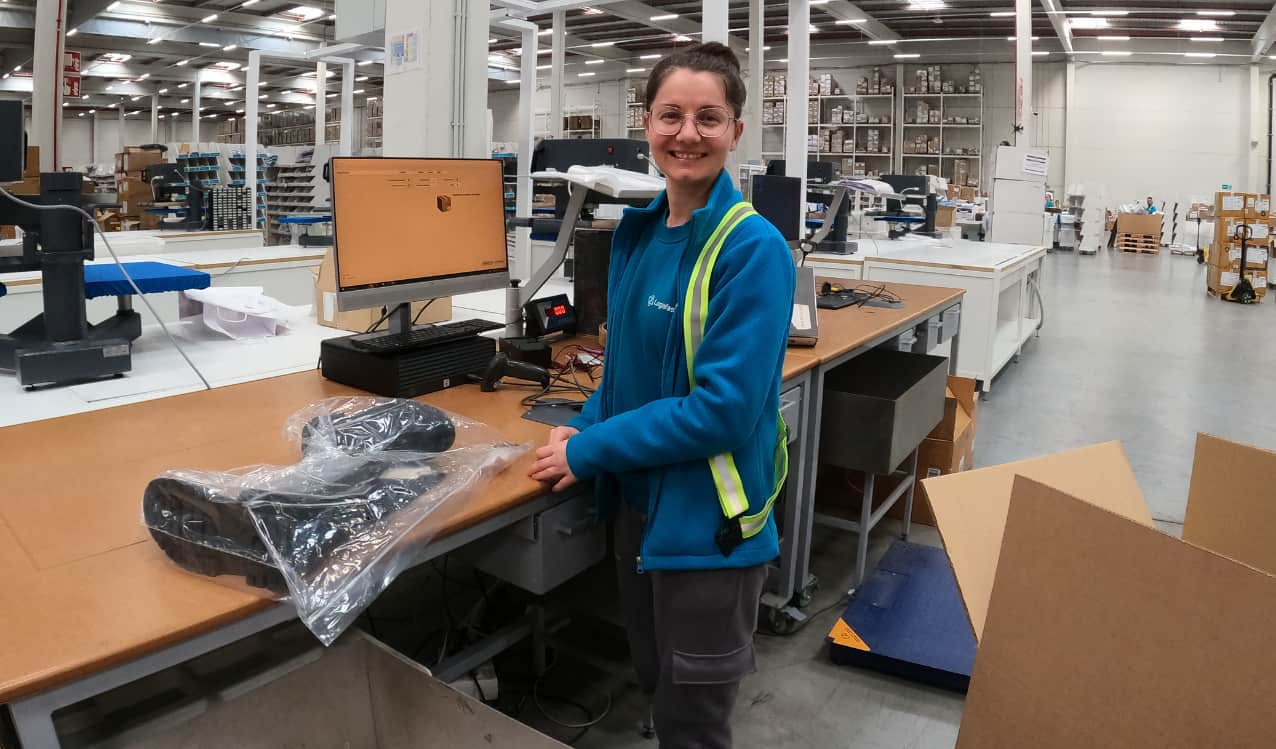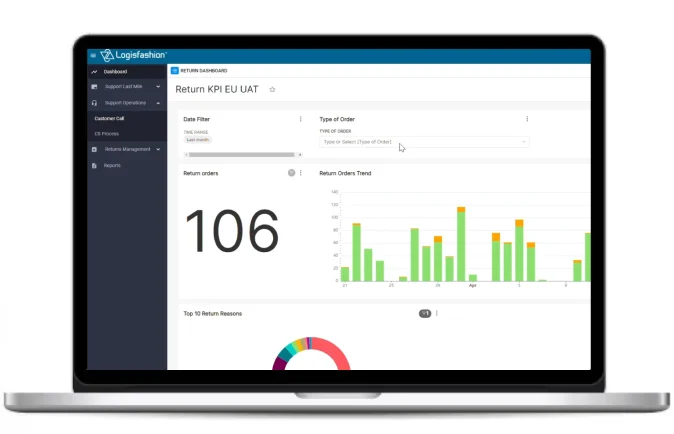LEARN MORE ABOUT HOW AN INTERNATIONAL SUPPLY CHAIN WORKS
What is international logistics?
International goods transport entails managing not solely purely logistical aspects (namely transportation, packaging and storage) but also legal and customs issues.
Globalisation has brought with it exponential growth in terms of cross-border transport. In truth, this goes far beyond taking products from one country to another; it seeks to streamline routes to reduce costs and sharpen delivery processes. It is patently clear that this internationalisation comes laden with challenges and opportunities for all business types.

Features of international logistics
International logistics displays certain defining features that distinguish it from other logistics models. Specifically, three defining features can be highlighted:
- International Scope. By definition, this type of logistics occurs between two different countries. This is the gloablised or cross-border nature which hastens increased complexity derived from the need to process issues relating to customs and international legislation.
- Standardisation As a consequence of the foregoing point, every cross-border supply chain requires compliance with different international standards, which will depend on the countries involved and the type of goods transported.
- Multiple transport modes. Every cross-border supply chain makes use of multimodal options to transfer goods from one country to another. Therefore, accomplishing international logistics entails using different means of land, air and sea transport.
The advantages of using international logistics.
In a world that is becoming increasingly more globalised, international logistics places within our reach an incredibly valuable tool. Indeed, having on-hand specialist suppliers of this type of service brings with it a series of competitive benefits that are worthwhile underscoring:
- Market opportunities are multiplied. It is undeniable that cross-border transport opens doors for us to enter new markets. This chance to expand endows us with numerous advantages, ranging from the diversification of risks to the increase in potential customers and partners.
- International reputations are enhanced. Logistics, either on the national or international stage, are intrinsically linked to customer satisfaction and loyalty. Certainly, a streamlined export service constitutes a first-rate covering letter for any firm.
- Production output is increased. By producing more, we make it easier to boost our profit margins. Furthermore, we benefit from greater opportunities when negotiating rates with partners and suppliers.
- Competitive pricing polices are encouraged. Internationalising the supply chain is key to cutting production and distribution costs, as it allows us to carry out the productive process in more profitable countries.
- Environmental sustainability is enhanced. The strategies and processes involved in international logistics adopted have a major bearing on the environment. A fine example of the above is the optimisation of the supply chain to reduce CO2 emissions.
Great challenges of international logistics
It is fair to recognize that, when we talk about international logistics, advantages and challenges are on the same level. Fortunately, it is enough to choose a good logistics partner to overcome the great challenges posed by this activity.
Adapt to diverse regulatory environments
Transporting goods through several countries involves having to comply with their corresponding regulations. These standards do not necessarily coincide with each other and affect multiple logistical aspects (safety, environment, taxes, etc.). Thus, it is the mission of the international logistics operator to know and advise clients to comply with the changing regulatory requirements of each country.
Have multiple means of transportation
Multimodal transport and transnational logistics always go hand in hand. Consequently, its development requires multiple means of transportation (boats, trucks, trains, planes, etc.). Facing the bureaucratic procedures and expenses that such a fleet entails is a real challenge.
Be an expert in customs management
Customs management involves satisfying multiple legal and tax obligations that vary from country to country and depend on the type of item and the countries of origin and destination. Such activity involves knowing the requirements and regulations as well as making sure that the tariff codes are correct and calculating taxes accurately. Thanks to this, goods can reach their destinations more quickly.
Maintain quality standards
The decentralization of the production process cannot reduce the quality of the products transported by transnational logistics. Having the logistics provider carry out quality control at origin will be of great help to maintain qualitative standards at optimal levels.
Ensure sustainability
Consumers are increasingly demanding a greater commitment to sustainability from companies, something that especially affects transnational logistics. Therefore, those who provide these services must optimize their activities to minimize their environmental impact (e.g. opting for clean infrastructure).
Expedite deadlines
All the challenges that we have just explained must be resolved by the logistics operator without delaying delivery times. After all, speed is key to saving costs and ensuring recipient satisfaction.
Operate in a changing and complex environment
The difficulty of transporting goods across several countries is evident. After all, geopolitical tensions are felt in an activity like this. Let us think, for example, about the effects that armed conflicts and economic crises have on international logistics.






